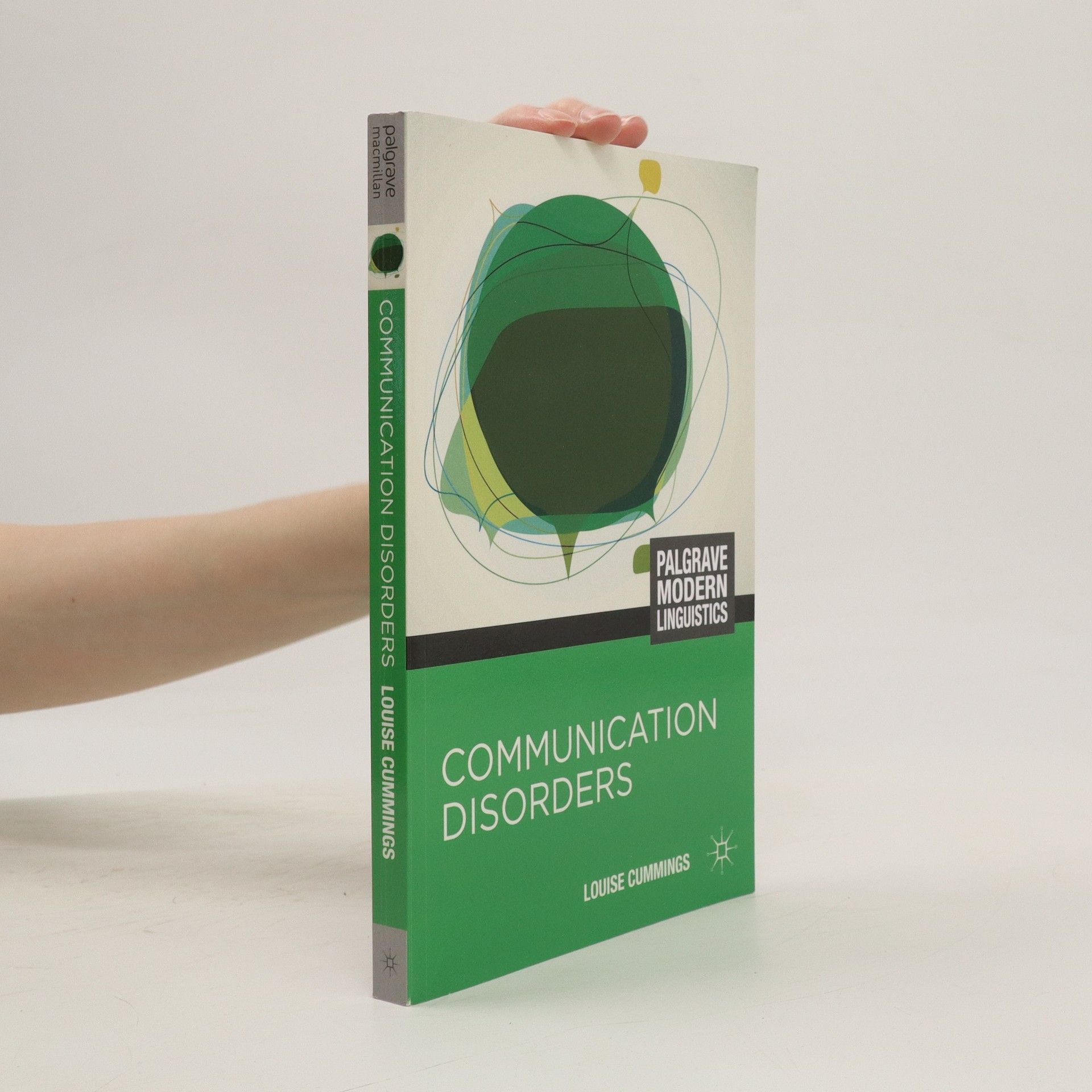What are communication disorders? How are they identified, assessed and treated? This introductory textbook presents the full range of developmental and acquired communication disorders, including specific language impairment, dysarthria, apraxia of speech, aphasia and stuttering. Covering clinical features, diagnosis and treatment, the book is an indispensable resource for students of linguistics, and speech and language therapy. Communication Disorders also: - Includes clinical linguistic data throughout to illustrate specific features of communication disorders - discusses disorders often neglected in introductory books, such as glossectomy and gender dysphoria - Contains in-text references to a companion website which has colour photographs, audio and video files, and 200 self-test questions - Provides exercises with answers, key point boxes, case studies, suggested readings and a glossary
Louise Cummings Books






Fallacies in Medicine and Health
Critical Thinking, Argumentation and Communication
- 308 pages
- 11 hours of reading
The textbook explores the role of informal fallacies in medical and health arguments, challenging traditional views by presenting these fallacies as rational tools for navigating complex decisions faced by individuals. It highlights how cognitive heuristics can assist in understanding issues like immunization, dietary choices, and health screenings. Featuring learning objectives, case studies, and discussion questions, it addresses contemporary topics such as antibiotic resistance, genetic engineering, and the legalization of cannabis, making it a valuable resource for students in various disciplines related to critical thinking and health.
Language Case Files in Neurological Disorders
- 240 pages
- 9 hours of reading
Focusing on adult-onset neurological disorders often overlooked in speech-language pathology, this book presents case studies of ten individuals with acquired brain injuries coupled with complex neurological conditions. It highlights the unique challenges and experiences faced by these individuals, providing valuable insights for professionals in the field.
Focusing on a clinical approach, this comprehensive course textbook delves into pragmatics and the development of pragmatic language skills. It offers an innovative exploration of how language is used in context, making it a valuable resource for understanding communication in various settings.
Protecting the Public's Health During Novel Infectious Disease Outbreaks
- 75 pages
- 3 hours of reading
The emergence of bovine spongiform encephalopathy (BSE) in British cattle and the COVID-19 pandemic are explored through the lens of informal fallacies, which served as cognitive heuristics in public health reasoning during these crises. The book delves into how these fallacies shaped public understanding and response to health emergencies. Additionally, it is available as Open Access on Cambridge Core, making it accessible for a wider audience.
Language in Dementia
- 375 pages
- 14 hours of reading
This book examines language and communication in clients with cognitive impairment and dementia and the treatment of these clients by speech-language pathologists, using real examples of language from individuals with neurodegenerative disorders. It is written for all medical and health professionals involved in the clinical management of dementia.